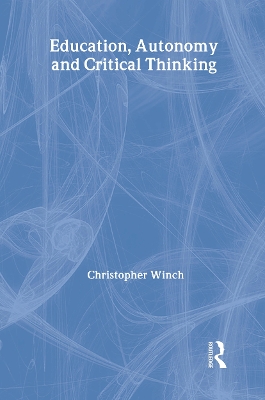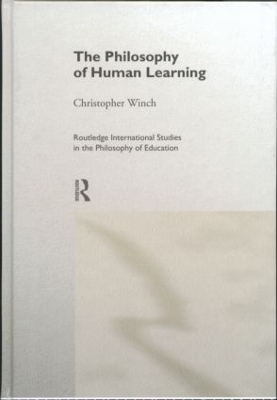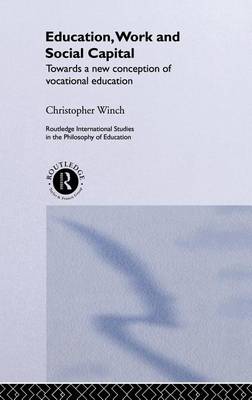Routledge International Studies in the Philosophy of Education
1 primary work • 3 total works
Book 15
The concepts of autonomy and of critical thinking are of key importance in many contemporary accounts of the aims of education. Education, Autonomy and Critical Thinking analyzes their relationship to each other and to education, explores their roles in mortality and politics, and examines the part critical thinking has to play in fulfilling the educational aim of preparing young people for autonomy.
Assessing the significance of the concern with critical rationality as a key intellectual component for a worthwhile life involving autonomy, this book also examines important views about what critical thinking is and how it can be cultivated.
Drawing from discussions on epistemology and the philosophy of language which concern the nature of rationality, Christopher Winch produces a powerful critique of concepts central to contemporary philosophy of education - autonomy and critical thinking.
The Philosophy of Human Learning addresses current concerns with the nature of human learning from a distinctive philosophical perspective. Using insights derived from the work of Wittgenstein, it mounts a vigorous attack on influential contemporary accounts of learning, both in the 'romantic' Rousseauian tradition and in the 'scientific' cognotivist tradition. These two schools, Professor Winch argues, are more closely related than is commonly realised.
* the work-related aims of education
* the moral and spiritual significance of work
* the conceptualisation of political economy
* high-skill economies and vocational education
* the 'end of work' thesis
* the relationship between education and training in vocational education
* future work patterns
* the educational consequences of the economic theories of influential economists such as Smith, Mill, Marx, Marshall and Keynes.
This is an essential and ground-breaking study for academics and students of business studies, economics, political economy, and the sociology of work. It will equally be of interest to policy makers concerned with the future development of vocational education and training.


